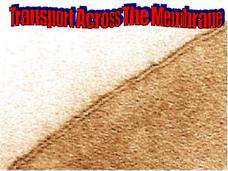Curated OER
Solubility
Fifth graders determine the difference between a soluble and an insoluble solution and how to increase solubility. They make a saturated solution using solvents at different temperatures.
Curated OER
Chemistry: Changing Materials
Students examine physical change with different temperature and solvents. In this elements and compounds lesson, students conduct experiments to discover what happens to the mass of a substance when is undergoes a physical change.
Curated OER
A Solution for Moles
Students calculate the concentration of different solutions. In this chemistry lesson, students explain what a solution is. They explain ways to change the concentration of a solution.
Curated OER
Determining pH
Students evaluate pH levels through a solubility experiment. In this pH levels lesson, students list characteristics of acids and bases. Students complete their own pH level experiment. Students go to the GEMS Alien Juice Bar website to...
Curated OER
Rate of Solution Demonstration
Young scholars explore the factors that can increase the rate of dissolution for a solid. They complete a laboratory exploration in which they compare the dissolution rate of a whole sugar cube to that of a crushed sugar cube in a...
Concord Consortium
Micelles
Micelles consist of an aggregate of molecules in a colloidal solution. The simulation presents two different ways the molecules assemble into micelles based on the polarity of the solution in which they are placed. Scholars can set the...
Pingry School
The Alchemist's Dream – Copper into "Gold"
Many scientists attempted alchemy for hundreds of years before a full understanding of metals became clear. Scholars take a penny and, through two different chemical reactions, make it appear to turn into silver and later gold. They...
Curated OER
Water:Properties, Chapter 3
Hydrogen bonds, and polarity are described in this PowerPoint, and the reasons for tension and cohesion associated with water. The states of water under certain conditions are explained with information about the changes in density and...
Curated OER
Moles
In this moles worksheet, students review solubility, moles of solute, molar mass, and colligative properties. This worksheet has 10multiple choice questions and 11 problems to solve.
Curated OER
Volumetric Analysis / Titration
Titration, and the lab skills that are needed to support it, is detailed here, with the reasoning behind standard solutions, concentration and volumetric analysis covered. Your young lab assistants will learn the skills of determining...
Curated OER
Chemistry
In this chemistry worksheet, students describe an atom, its parts, the charges of these parts, and atoms life functions. Then they explain what the octet rule states for the placements of electrons around the nucleus of an atom. Students...
Gallantsbiocorner.com
Cell Membrane & Transport
Young scientists demonstrate their understanding of cell transport on this comprehensive activity. Focusing on cellular structure and the different processes that allow materials to move into, out of, and throughout animal cells, this is...
American Chemical Society
Does Temperature Affect Dissolving?
When making sweet tea, why do people dissolve the sugar in hot tea instead of cold tea? The class discusses the previous lab and builds upon it. Working in groups, they design an experiment to determine how temperature affects the...
Florida International University
Are You Concentrating?
Explore the importance of a concentration gradient in the rates of dissolution. Using the ocean ecosystem, learners study rates of dissolution around coral reefs. A hands-on experiment helps individuals discover the effects of changing a...
Gallantsbiocorner.com
Transport Across the Membrane
Take your biology class on an exploration of the inner workings of cells with this multimedia presentation. Looking closely at the structure of cell membranes and the processes of osmosis and diffusion, this resource explains for...
Teach Engineering
Chromatography Lab
Groups use alcohol and chromatography paper to separate the color components of black ink. The purpose of the activity is to allow the class to become aware that mixtures exist in hidden places.
Curated OER
Osmosis and Dialysis
How do you engage pupils in a discussion about osmosis without leaving them overwhelmed? By providing them with the tools to perform an exciting experiment, and they will see osmosis in action! Young chemists and biologists use a potato...
CK-12 Foundation
Soap
Examine the chemistry of the laundry room! A thorough video explains the polarity and non-polarity properties of soap. The tutorial continues to explain the advantage of these properties in stain removal by showing the bonding of the...
Curated OER
Water Resource Engineering
Learners examine solubility and the significance of water. In this aqueous solution instructional activity students complete a lab activity on soil profiles.
Curated OER
Straw Chromatography
Young scholars become acquainted with the principles of liquid chromatography and construct a liquid chromatography column. Students also investigate the effects of different solvents and solvent concentrations in the separation process.
Curated OER
Rock Candy
Fourth graders observe and demonstrate the physical change of dissolving sugar in water and evaporating the water to examine the physical change that has occurred. They discuss physical changes and solutions, and make rock candy,...
Curated OER
Chemical Reactions
In this chemical reactions worksheet, learners solve 16 exercises by writing and balancing chemical reactions. They calculate the concentration of various solutions.
Rensselaer Polytechnic Institute
Molecules to the Max!—Educators Resource Guide
From molecules to nanotubes, an engaging unit explores the world of tiny science. Fifteen hands-on experiments and lessons engage young scientists as they learn chemistry. Discussions, worksheets, and data analysis reinforce the concepts...
Virginia Department of Education
Laboratory Safety and Skills
Avoiding lab safety rules will not give you super powers. The lesson opens with a demonstration of not following safety rules. Then, young chemists practice their lab safety while finding the mass of each item in a mixture and trying to...

























